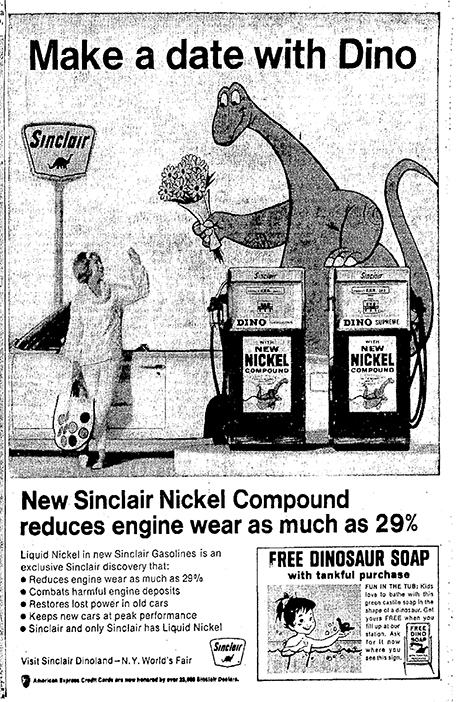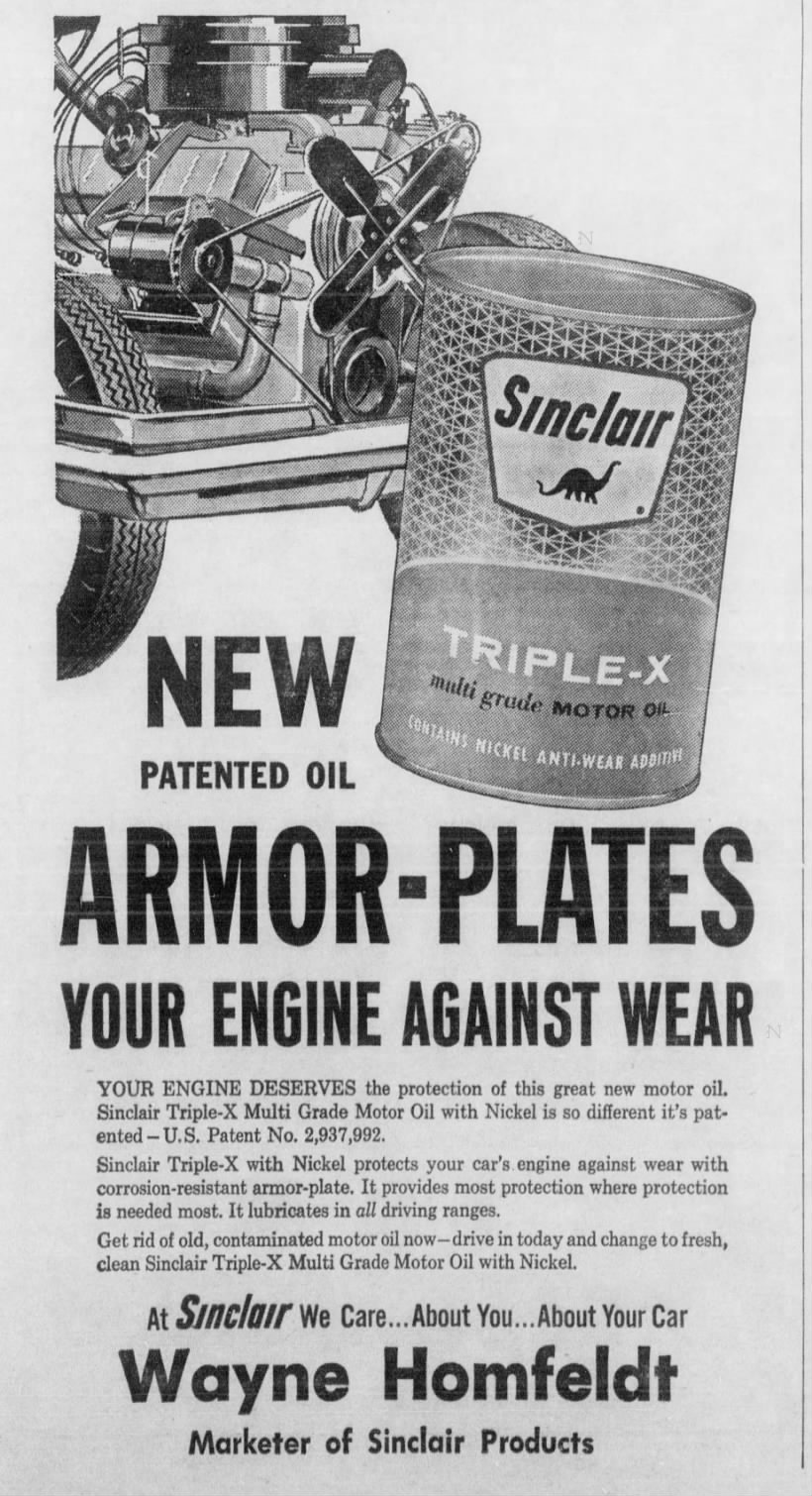The April 22, 2022 Veritasium video The Man Who Accidentally Killed The Most People In History is worth a watch, and was the basis for the question Why would tellurium + sodium hydroxide have worked as a good anti-knock gasoline additive (if it wasn't so smelly)?
But today I've come across a different heavy metal additive to gasoline!
I fondly remember the Sinclair Oil dinosaur statues and the free green dinosaur soap we sometimes got with a fill-up. But this circa 1964-1965 (from the reference to the 1964 World's Fair at the bottom) advertisement mentions a new "liquid nickel" additive to gasoline that "reduces engine wear as much as 29%".
Question: How did Sinclair Oil put "liquid nickel" into gasoline, and what were the chemical mechanism(s) by which it was supposed to reduce engine wear?
I've proactively added the organometallic-compounds tag; if lead was introduced in its tetraethyl form, maybe nickel was made soluble with organics as well (not sure about that tellurium in the linked question though).
From the advertisement:
Liquid Nickel in Sinclair Gasolines is an exclusive Sinclair discovery that:
- Reduces engine wear as much as 29%
- Combats harmful engine deposits
- Restores lost power in old cars
- Keeps new cars at peak performance
- Sinclair and only Sinclair has Liquid Nickel
Source: US National Park Service's Tourism and Dinosaurs


